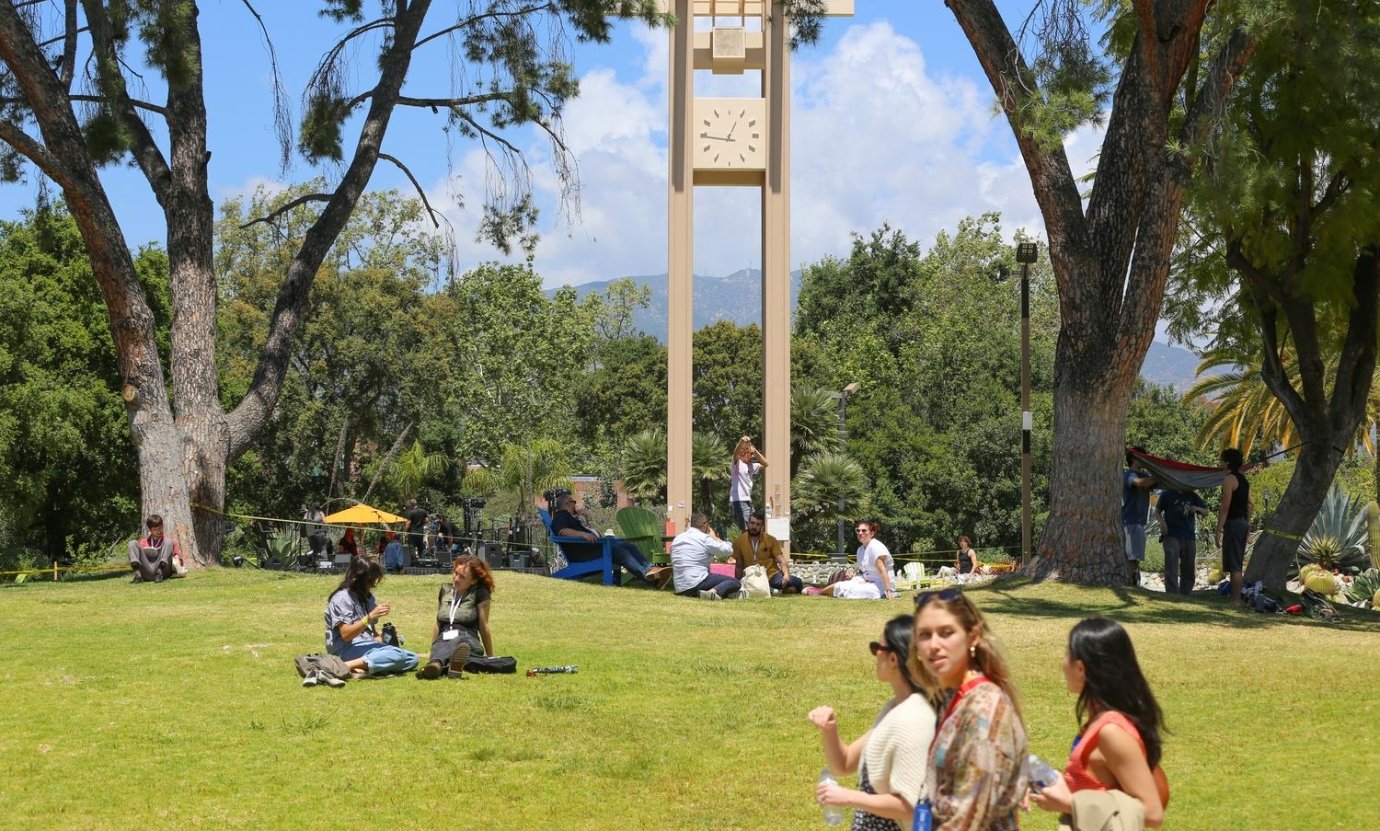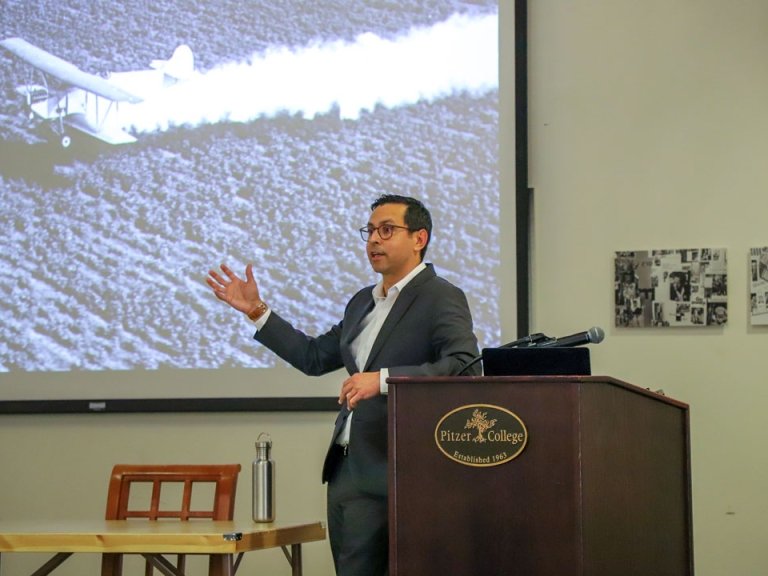Munroe Center for Social Inquiry (MCSI)

About
Each academic year, the Ruth and Lee Munroe Center for Social Inquiry continues the pursuit of interdisciplinary learning and public inquiry embodied by the lives and service of two of Pitzer’s most distinguished and beloved professors, the late Robert “Lee” Munroe, research professor of anthropology, and the late Ruth Hagberg Munroe.
2025-2026 Munroe Center for Social Inquiry Director: Professor Timothy Justus
Fall 2024: Talking Trash
View Series LecturesFall 2023: Apologies, Reparations, and Restitution
View Series LecturesMCSI News

Featured
Talk Highlights Unsettling Connections Between Toxic Waste and Food
For the fall lecture series “Talking Trash,” Pitzer’s Munroe Center for Social Inquiry invites Adam M. Romero to discuss how industrial waste affects agriculture.